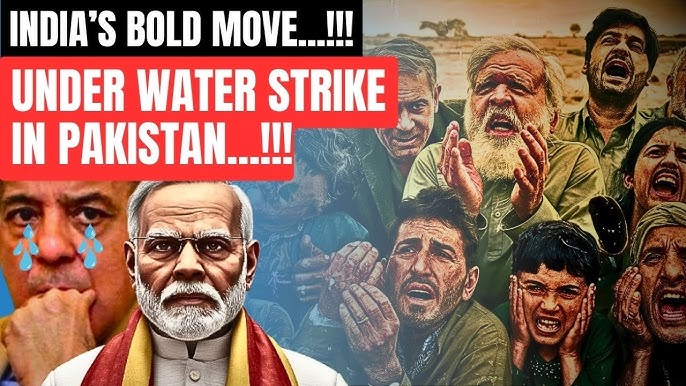
On April 22, 2025, a brutal terror attack in Pahalgam, Jammu and Kashmir, shocked India and the world. Five militants armed with AK-47s and M4 carbines attacked a group of mostly Hindu male tourists in the scenic Baisaran Valley, killing 26 people-including a foreign tourist from Nepal-and injuring over 20 others. The attackers reportedly segregated victims by religion, forcing some to recite Islamic verses and checking for circumcision before shooting them at close range. The attack targeted non-Muslim tourists explicitly (Especially Hindus), and survivors described horrific scenes of panic and bloodshed 45.
The militant group The Resistance Front (TRF), a proxy for Pakistan-based Lashkar-e-Taiba, initially claimed responsibility but retracted the claim days later, alleging their digital platform was hacked in a coordinated cyber intrusion, a claim viewed skeptically by Indian authorities 25. Indian intelligence identified Saifullah Kasuri, a top LeT commander, as the mastermind behind the massacre 5.
India’s Strong Response and Measures Against Pakistan
The attack significantly escalated tensions between India and Pakistan. Prime Minister Narendra Modi cut short his visit to Saudi Arabia and chaired a high-level meeting of the Cabinet Committee on Security (CCS). The Indian government announced several stringent measures against Pakistan:
-
Suspension of the Indus Waters Treaty: India suspended this 1960 treaty governing water sharing between the two countries until Pakistan ceases its support for cross-border terrorism.
-
Closure of the Attari Border Crossing: The main land border crossing between India and Pakistan was shut down.
-
Visa Restrictions: All Pakistani nationals’ visas under the SAARC Visa Exemption Scheme were cancelled, and no new visas were issued. Pakistani nationals currently in India were given 48 hours to leave.
-
Diplomatic Actions: Defence, Military, Naval, and Air Advisors of the Pakistani High Commission in New Delhi were declared Persona Non Grata and asked to leave within a week. India withdrew its own military advisors from Islamabad and reduced the overall strength of its High Commission in Pakistan.
-
Security Operations: The Indian Army launched joint cordon and search operations in Jammu and Kashmir, deployed helicopters to track militants, and increased vigilance along the Line of Control. Union Home Minister Amit Shah visited Srinagar and the attack site to oversee security coordination513.
Pakistan’s Response
Pakistan denied involvement in the attack and condemned the suspension of the Indus Waters Treaty by India. Pakistani Prime Minister Shehbaz Sharif called for a neutral, independent investigation into the attack and urged restraint to avoid further escalation. Pakistan also suspended the Simla Agreement, restricted trade with India, closed airspace and border crossings, and border skirmishes between Indian and Pakistani forces intensified along the Line of Control starting April 24, 202558.
Understanding the Indus Waters Treaty (1960)
The Indus Waters Treaty, signed on September 19, 1960, is a water-sharing agreement between India and Pakistan brokered by the World Bank. It allocates the waters of six rivers in the Indus basin between the two countries:
-
The Eastern Rivers (Ravi, Beas, Sutlej) were allocated to India for exclusive use.
-
The Western Rivers (Indus, Jhelum, Chenab) were allocated to Pakistan, with India allowed limited non-consumptive use such as hydroelectric power generation and irrigation within certain limits.
The treaty established the Permanent Indus Commission to oversee implementation and resolve disputes. It has survived multiple wars and political crises, serving as a rare example of cooperation between the two countries despite ongoing hostilities.
Impact of the Suspension of the Indus Waters Treaty
India’s suspension of the treaty marks a serious diplomatic and strategic escalation. The treaty has long been a cornerstone of bilateral cooperation, providing a framework to manage one of the most critical and contentious resources-water. The suspension:
-
Threatens Pakistan’s Water Security: Pakistan depends heavily on the western rivers for irrigation and drinking water. Any disruption could severely impact its agriculture and economy.
-
Raises Risk of Conflict: Water disputes could escalate into broader military confrontations, especially amid already heightened tensions.
-
Undermines Diplomatic Channels: The Permanent Indus Commission’s role in dialogue and dispute resolution is effectively paused.
-
Invites International Attention: The treaty is registered with the United Nations and backed by the World Bank, which may call for mediation or arbitration.
Conclusion
The Pahalgam terror attack was a tragic and brutal assault targeting innocent tourists, dramatically escalating India-Pakistan tensions. India’s suspension of the Indus Waters Treaty, alongside other strict diplomatic and security measures, signals a hardening stance against Pakistan’s alleged support for terrorism. The move carries significant risks for regional water security and peace. Both countries face a critical choice between de-escalation through dialogue or further confrontation.
This article is based on verified reports and official statements as of late April 2025.






